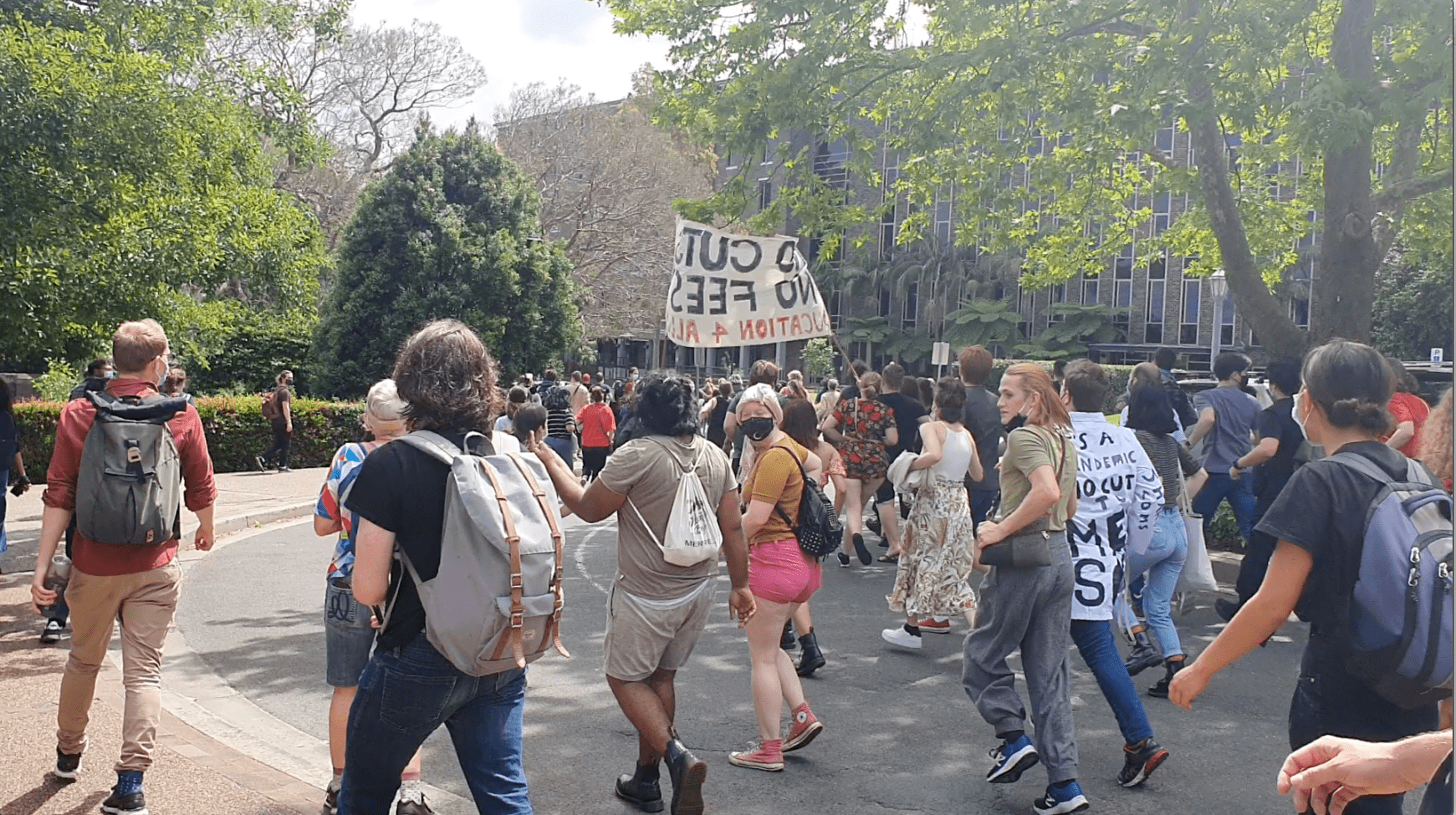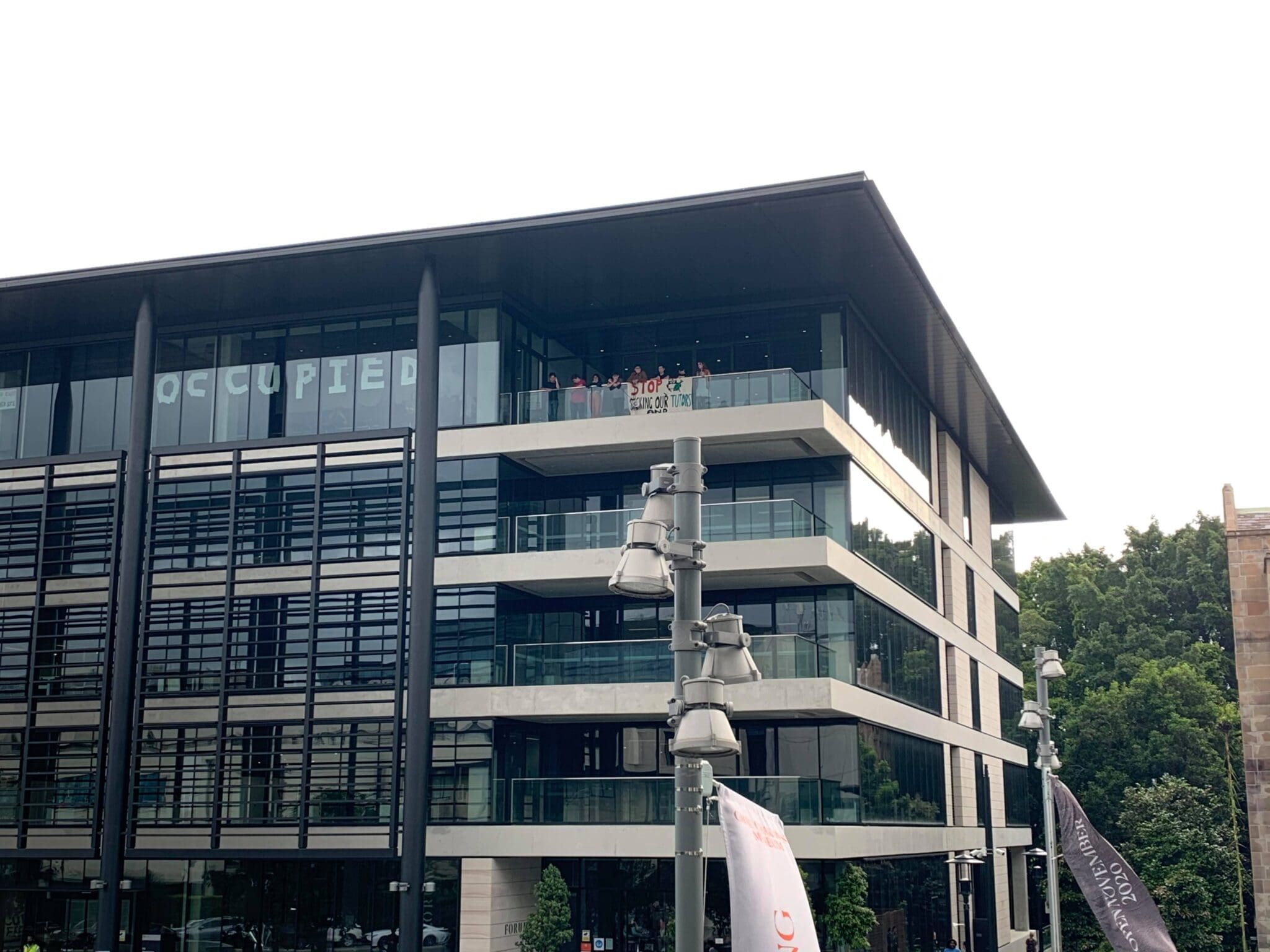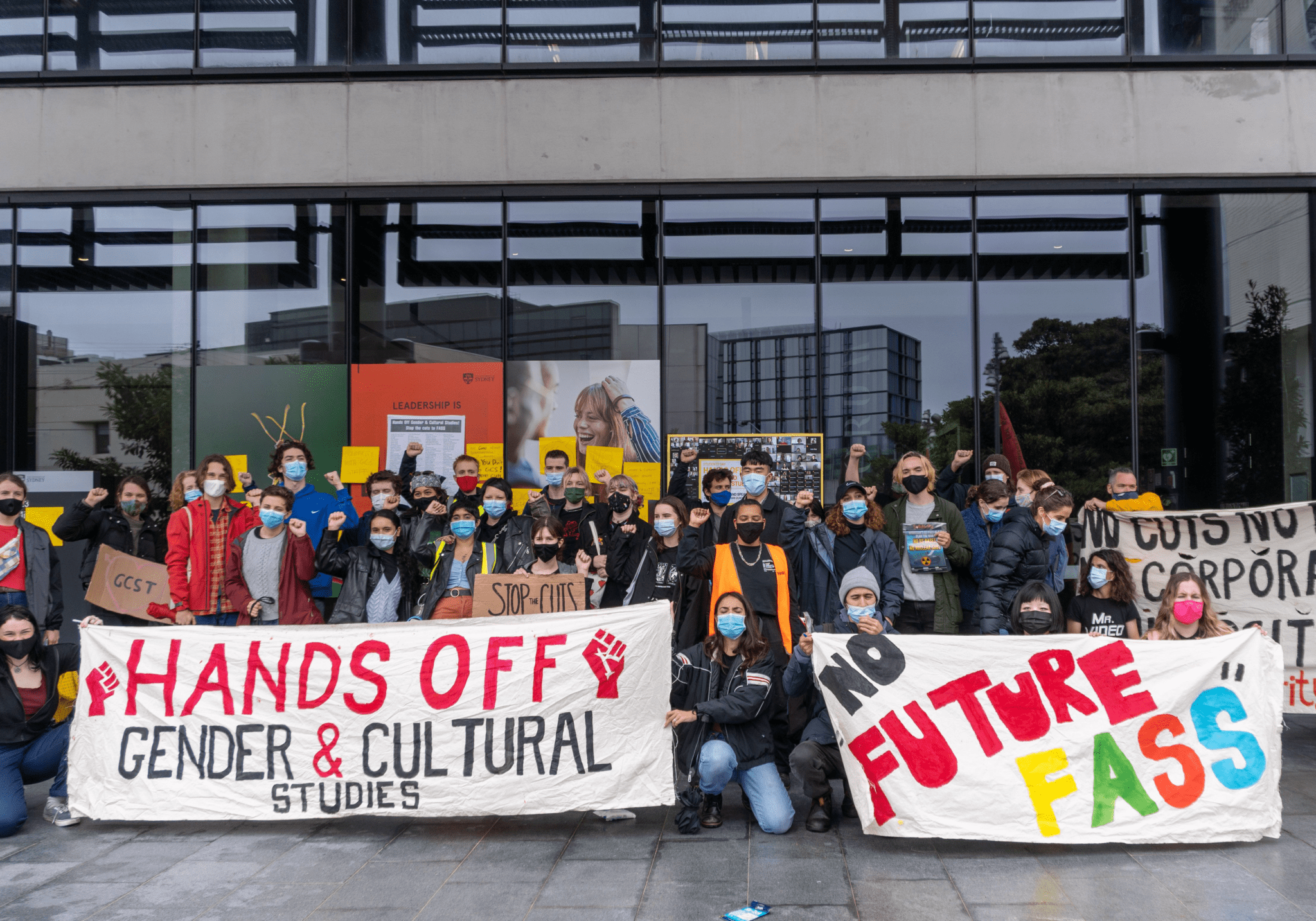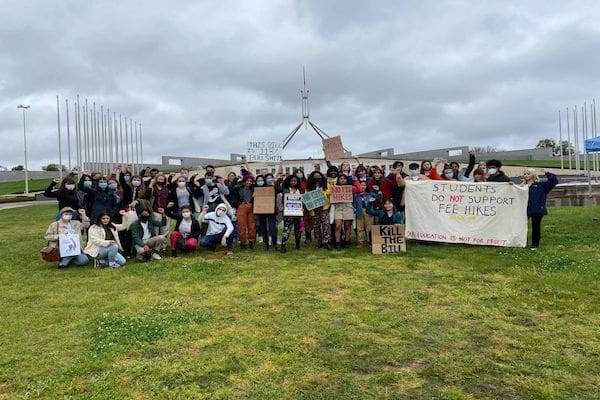Since 2020, USyd management has made hundreds of staff redundant, cut subjects, proposed to dissolve entire schools, and practiced widespread wage theft. This systematic erosion of our education has occurred under the guise of COVID-related financial constraints.
“There’s no recognition given to the expertise that staff have, and decisions get taken in an autocratic manner by senior managers who are in a bubble that really shields them from genuine accountability… that impacts on staff but it also really impacts on students,” says incoming National Tertiary Education Union (NTEU) Branch President Nick Riemer.
The timeline of the past two years paint a grim picture of austerity measures, but there is hope in staff and student campaigns:
1. Campus closes and classes shift online
On March 13 2020, the University announces plans for a potential campus closure. In the face of an expected $200 million shortfall in student fees due to the travel ban, this also brings a freeze on new staff appointments and renewals of casual and fixed-term contracts. The NTEU describes these actions as “austerity measures,” and a “slap in the face” for the many casual staff working overtime to shift teaching online.
2. Universities deemed ineligible for JobKeeper
In April, Federal Minister for Education Dan Tehan announces the Higher Education Relief Package, which reaffirms a pre-budgeted $18 billion “for domestic students,” and keeps government-funded university places at their pre-existing levels. The Government amends the JobKeeper eligibility criteria for universities exclusively, specifically changing the turnover test period to prevent staff from accessing the payment. The University now expects a $470 million loss.

3. Arts subjects under threat as fees rise
The Faculty of Arts and Social Sciences (FASS) proposes cutting 30% of its subjects. Staff and students stage a Day of Action to fight back, and the Faculty concedes to cutting a maximum of 8% of courses. University casuals speak out against layoffs and target the tertiary education sector’s prioritisation of profits over quality of education. The Government announces the Job-ready Graduates Package, which more than doubles the price of Arts degrees. The package eventually passes parliament in October.
4. University staff are underpaid and hundreds are made redundant
The University admits to underpaying staff, mostly casuals, almost $9 million. A survey conducted by the USyd Casuals Network finds that casuals reported working an average of 50 unpaid hours during Semester One. 60% had been underpaid prior to the pandemic, 82% during. Then-Vice-Chancellor Michael Spence – the highest-paid VC in Australia – announces that the University executive will take a 20%pay cut and that a voluntary redundancy program will be launched. At the end of the year, 252 redundancies are proposed due to projected revenue shortfall. The NTEU describes the restructuring as “pandemic opportunism.” Students occupy the F23 building and demand that the University commit to no cuts to staff or courses; they leave after nearly six hours amid a heavy police presence.

5. Mark Scott is appointed Vice Chancellor
In March 2021, the University Senate appoints Mark Scott, former ABC Managing Director and NSW Education Department Secretary, as Vice-Chancellor for five years. Unusually, Scott enters the role never having worked as an academic. The NTEU questions the motivations behind Scott’s appointment, and expresses fears that he would continue cuts and restructures and “further corporatise the university.”
6. Finances recover, restructures threatened again
The University confirms in April that it experienced a net loss of only $2.2 million in 2020, far less than earlier estimates of hundreds of millions. Staff and students react with outrage, saying that the outcome makes austerity measures even less justified. Meanwhile, University management proposes the dissolution of the School of Literature, Art and Media, and the closure of the departments of Studies in Religion and Theatre and Performance Studies. Hundreds protest on campus.

7. NTEU submits log of claims
In July, the NTEU submits an extensive log of claims in the lead up to Enterprise Bargaining Agreement (EBA) negotiations; the period once every four years where pay and working conditions are negotiated. Prominent concerns include systemic underpayment and wage theft and increased casualisation.
8. Casualisation continues, students hold General Meeting
4104 casual staff members are denied conversion to full-time work, continuing insecurity and, potentially, further wage theft. A draft change proposal (DCP) is released for FASS, presenting discipline mergers and changes and cuts to units with ‘low’ enrolment figures. Hundreds of students convene to hold a Student General Meeting to oppose restructuring and cuts across FASS and the Business and Dentistry schools, and support conversion of staff to permanency.
9. Discipline-focused change
At the end of January 2022, University management announce that FASS will shift from a departmental to a “disciplinary structure,” and there are no new redundancies for the moment. Management justifies the change as a means to simplify degree pathways and administrative double-up, however Riemer argues that the change contributes to further generalisation of the student experience, and facilitates previously proposed cuts and restructures.

10. What’s Next?
With staff and students returning to campus and the EBA soon to be finalised, staff are on the cusp of industrial action following two years of sustained austerity measures and mistreatment from University management. As in 2013 and 2017, sustained activism and advocacy is the onerous – yet necessary – work that staff and students must often do to effect real change.





